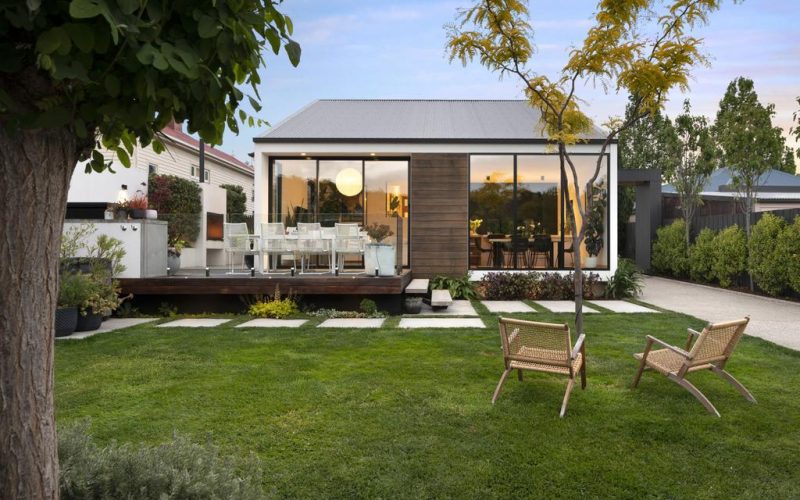In an era where climate change has become an urgent global concern, the real estate industry is undergoing a remarkable shift toward sustainability. As the demand for eco-friendly living spaces escalates, developers, architects, and homeowners alike are embracing innovative practices to construct sustainable homes, envisioning a future where environmental consciousness harmonizes with modern living.
Feature Story:
Building a Greener Tomorrow: The Rise of Sustainable Homes
From solar panels and energy-efficient designs to recycled materials and smart technologies, sustainable homes are redefining the landscape of real estate. The shift toward eco-conscious living spaces reflects a growing awareness of the environmental impact of traditional construction methods and a determination to mitigate it.
Innovative architectural designs prioritize energy efficiency, harnessing natural light and ventilation while reducing reliance on artificial heating and cooling systems. Builders are incorporating sustainable materials like bamboo, reclaimed wood, and recycled steel, minimizing the carbon footprint of construction projects. Moreover, the integration of renewable energy sources such as solar panels, geothermal systems, and rainwater harvesting not only reduces utility bills but also lessens reliance on fossil fuels.
Homeowners are increasingly recognizing the long-term benefits of sustainable homes, including lower energy costs, improved indoor air quality, and a reduced environmental footprint. This shift in consumer preferences is compelling developers to adapt, leading to a proliferation of eco-friendly housing options in the market.
Despite the initial higher costs associated with sustainable construction, the long-term economic and environmental advantages are driving this transformation in the real estate industry. Governments and organizations are also incentivizing sustainable practices through tax breaks, subsidies, and green building certifications, further encouraging this paradigm shift.
Opinion Piece:

Embracing Sustainable Living: A Necessity, Not a Luxury
In a world grappling with environmental crises, the transition to sustainable homes is not merely an option but a moral imperative. As individuals, communities, and industries bear the responsibility of reducing their carbon footprint, real estate’s evolution toward sustainability stands as a beacon of hope.
Investing in sustainable homes isn’t just about reducing utility bills; it’s about safeguarding our planet for future generations. It’s about fostering communities that prioritize the well-being of both inhabitants and the environment they live in. While the shift toward sustainability may pose challenges initially, the long-term benefits for our planet and our collective future outweigh these obstacles.
Furthermore, the responsibility doesn’t solely rest on homeowners; governments, policymakers, and corporations must collaborate to enact and enforce regulations that promote sustainable building practices. It’s imperative that the real estate industry as a whole embraces sustainable principles, integrating them into the fabric of urban planning and development.
In conclusion, the journey towards sustainable homes isn’t just about constructing buildings; it’s about reshaping our relationship with the environment. By choosing sustainable living, we pave the way for a brighter, cleaner, and more resilient future.
Research and Ethical Approach:
Ensuring accuracy and credibility in reporting on sustainable homes requires thorough research and verification of sources. This involves consulting reputable studies, interviewing architects, builders, environmental experts, and homeowners experienced in sustainable living, and analyzing data from credible organizations specializing in green building initiatives.
Adhering to journalistic ethics, it’s crucial to present a balanced perspective by considering differing viewpoints within the real estate industry regarding the challenges and benefits of sustainable home construction. Fact-checking and cross-referencing information from multiple reliable sources are imperative to provide readers with accurate and comprehensive coverage.
In summary, sustainable homes represent a significant stride toward a more eco-conscious future. As a journalist, it’s my commitment to deliver well-researched, ethically sound, and insightful reporting that sheds light on the evolution and impact of sustainable living in the real estate sector












